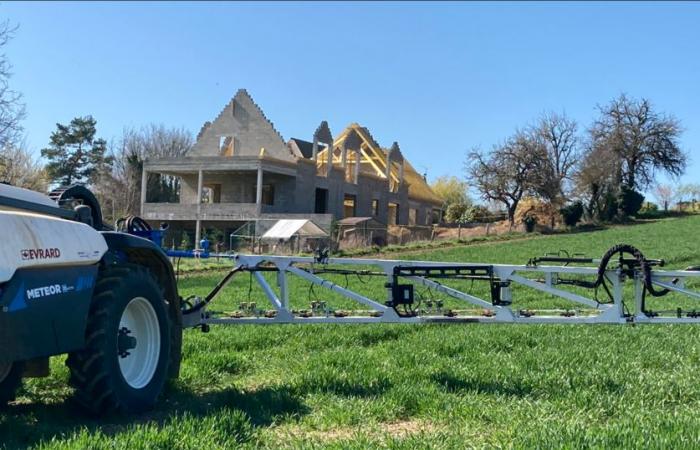
Urine and blood tests planned in the investigation
L’National Agency for Food, Environmental and Occupational Health Safety (Anses) and Public Health France launched their Albane project on September 16. This national survey aims to “assess the state of health of the population living in France “, indicates Anses, on questions offoodofphysical activityof sedentary lifestyle and ofexposure to some chemical substances. In particular, exposure to pesticides and some PFAS (per- and polyfluoroalkylated, or “eternal pollutants”) will be studied via urine tests and of blood. This investigation, first regionalwill be extended to the whole of France in May 2025 and renewed every two years.
Read also: Victims of pesticides: farmers still make too little use of the compensation system
First results of exposure to chemical substances expected for 2028
The aim of this investigation, explains theHandlesis to “enlighten the public authorities on the measures to be implemented to improve the population health » thanks to the data collected. The first results of the Albane survey at the national level are planned for 2027and the measurements of the concentration levels in the body of chemical substances For 2028. These results will take the form of reports for the purpose of decision makers or ofscientific articles. THE financing come from ministries of the Ecological transitionof the Healthof theAgriculture and of Work.
Read also: Anses wants to take the exposome into better account in its work, particularly on pesticides
400 participants drawn at random, followed for 3 months
This announcement of theHandles and of Public Health France also marks the beginning of the first phase of theinvestigation Albane. This begins on September 16 and ends in December 2024. This “pilot phase” will take place in Ile-de-France and in New Aquitainenear 200 adults from 18 to 79 years old and 200 children over 2 years old. Drawn at random via an INSEE database, these 400 participants will be followed for three months. A site dedicated to theinvestigation allows the participants to manage their follow up.
Read also: AI, a hope for better identifying bees exposed to pesticides
What steps for participants?
Firstly, the participants will be drawn at random from an INSEE database. An investigator from the Ipsos polling company will then visit the homes of those selected to present theinvestigation Albane and get their agreement. Then, over a period of three weeks, participants will have to answer a quiz on their lifestyle habitstheir foodtheir health and their physical condition. Finally, some health examinations will be carried out in laboratories of medical biology. This is when, among other things, the urine and blood tests participants.
Read also: Glyphosate: the legal document on “involuntary pissers” that the FNSEA Centre-Val-de-Loire wants to recover at all costs
A national survey planned for 2025
After the “pilot phase”, the Albane survey will be extended to the entire territory from May 2025In a press release, ANSES specifies that this national survey will then be renewed every two years from a new sample of people. Sébastien Denys, Health-Environment-Work Director-Public Health France who worked on the survey, adds that “there are plans to include overseas territories from 2028.”
Read also: Pesticides: a first collective action for non-professional victims launched by Corinne Lepage





